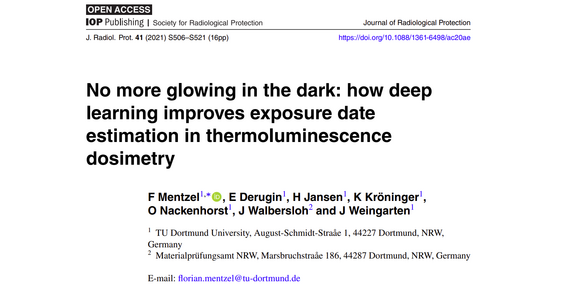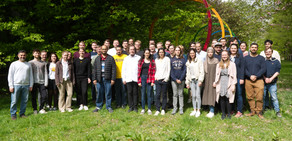News
No more glowing in the dark: how deep learning improves exposure date estimation in thermoluminescence dosimetry
- News

Abstract:
The time- or temperature-resolved detector signal from a thermoluminescence dosimeter can reveal additional information about circumstances of an exposure to ionising irradiation. We present studies using deep neural networks to estimate the date of a single irradiation with 12 mSv within a monitoring interval of 42 days from glow curves of novel TL-DOS personal dosimeters developed by the Materialprüfungsamt NRW in cooperation with TU Dortmund University. Using a deep convolutional network, the irradiation date can be predicted from raw time-resolved glow curve data with an uncertainty of roughly 1–2 days on a 68% confidence level without the need for a prior transformation into temperature space and a subsequent glow curve deconvolution (GCD). This corresponds to a significant improvement in prediction accuracy compared to a prior publication, which yielded a prediction uncertainty of 2–4 days using features obtained from a GCD as input to a neural network.
To the paper:
J. Radiol. Prot. 41 S506
Our other publications on the subject of dosimetry can be found on the corresponding list of publications.


![[Translate to English:] [Translate to English:]](/storages/zentraler_bilderpool/_processed_/a/a/csm_Kopfbild_TU_Dortmund_von_oben_d7307cbbd8.jpg)